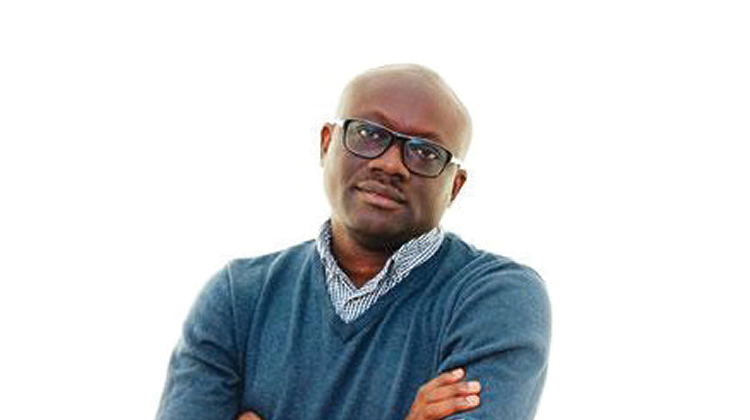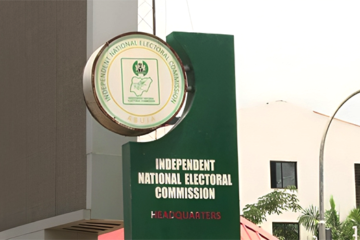Announcing the arrival of state police [OPINION]

Simon Kolawole
By Simon Kolawole
After nearly 70 years of agitation, Nigeria finally looks set to establish state police. That is, every state will have its own police force. On Thursday, House of Assembly speakers in the 36 states of the federation announced their support for the proposal. That means we should expect state legislators to endorse an amendment when it gets to them. First, two-thirds of National Assembly members must pass it. Only 24 of the 36 states are required to endorse it by a simple majority of the Houses of Assembly. It will finally require presidential assent for it to take effect. President Bola Tinubu has been campaigning for state police for decades, so I guess he will sign off as soon as it gets to his desk.
The book, ‘The Police in Modern Nigeria, 1861-1965: Origins, Development, and Role’, authored by Prof Tekena Tamuno and published by the Ibadan University Press in 1970, offers some insight into the historical battle for the control of police. The agitation for “regional police”, now called “state police” (since the federal structure has morphed from three regions to 36 states), started in the 1950s under colonial rule. As Nigeria prepared for limited self-rule and, eventually, independence, the structure and control of the police force became a hot topic, championed in the main by the now-defunct Western region, which is today’s south-west zone plus Edo and Delta states.
As related by Tamuno, a professor of history and former vice-chancellor of the University of Ibadan who died in 2015, S. Akinola, representing Ijesha (Western region) in the Federal House of Representatives, raised a couple of proposals during the house debates in 1955. One, he wanted police deployment to be done predominantly along ethnic and linguistic lines. That meant Yoruba would dominate the west; Igbo, the east; and Hausa/Fulani, the north. His second proposal was more radical: he wanted the police regionalised and placed under a “Regional Authority” rather than “remotely controlled” by the “big man in Lagos” — referring to the inspector-general of police.
Chief Obafemi Awolowo, who was premier of the Western region, was a fierce advocate of regionalised police. He argued that it was a feature of federalism (what we call “true federalism” in modern-day Nigeria) and that of all the federations he had studied, only the Federation of Malaya (now defunct and succeeded by Malaysia) centralised the police force. Awo said as a premier, he considered it “humiliating” that a regional government that was constitutionally vested with the power of maintaining law and order was denied the power of managing its own policing. He warned that the central government could become “authoritarian” under the existing policing structure.
From my reading of history, regional police was an idea loved and promoted largely by the Western region. The Eastern government preferred “a unified Federally-controlled Police Force”. The Northern Peoples Congress (NPC), the biggest party in the Northern region, was not that interested in the regional police debate, maybe because there was already the Native Authority Police which operated at the local government level. The Western region had local government police too, but it wanted the arrangement replicated at the regional level. Notably, the Eastern region did not have local police. Eventually, the constitutional conferences of 1957 and 1958 did not endorse regional police.
We, therefore, went into independence in 1960 with the federal police structure unchanged, although local police remained in Northern and Western regions. The 1963 Constitution also retained the structure. Western and Northern regions resisted attempts to absorb the local police forces into the Nigeria Police Force (NPF). In 1965, the Eastern region — perhaps, having observed how politicians were using local police in the other regions — decided to establish its own, but this was not implemented before the military took over in 1966 and thereafter amalgamated all the police forces in Nigeria. We have had the same structure and control of the police force since then.
However, with growing insecurity across the federation, the campaign for subnational police, initially viewed as the agenda of the south-west, has started winning disciples in other zones. In fact, the south-west defiantly set up Amotekun and the south-east Ebube Agu to do some form of internal policing in the heat of the debate a few years ago. With state police, the governors — as chief security officers — will assume some control over policing in their domains, including recruitment, appointment and funding. In theory, they will have no say in operational matters, such as deployment. But in theory, too, the president has no operational control over the federal police.
There are several arguments in favour of having state police. The most compelling is the need for efficiency. It is argued that a police force spread across 774 local government areas and controlled from Abuja offers something of a logistical nightmare. This is somewhat exaggerated: I have never heard that the police were informed of an ongoing robbery in Egbeda and they said they needed an order from Abuja to respond to the call. However, responsiveness is not something associated with the current structure. But is it the centralisation that hampers efficiency? Is it poor funding? Is it corruption? Is it a lack of local content, such as community policing? These are important questions.
Another argument for state police is the political abuse and misuse of federal police by the federal government. One of the resolutions of the constitutional conference held in London in 1953 was that “arrangements should be made to avoid the danger of the police coming under the control of a political party”. This is difficult to implement, whether at federal or state level. In 1955, members representing Asaba, Warri and Benin in the Western House of Assembly complained about the activities of local police in areas not under the control of the dominant Action Group (AG). We may end up only decentralising the political abuse of police when the states set up their own forces.
I must admit at this stage that I was once totally against state police. My reservations — which I will restate shortly — have not changed. But I have amended my position. I am now willing to watch us perform the experiment, even though I am not expecting any spectacular change in our situation. The problem starts from the way we identify problems and proffer solutions in Nigeria. We often narrow down to one out of several causes — and then propose a cure-all solution. Sadly, when an ailment is misdiagnosed, increasing the dosage of medication is not going to solve the problem. Most times in Nigeria, we are more interested in treating scabies than getting rid of leprosy. It is what it is.
A case for state police is “efficiency” — that is, the states will manage the forces much better than federal government. Really? Where is the evidence? There is this assumption that states manage things better than federal government. But are state-owned universities better run than federal ones? Are state-owned hospitals better? Are state roads better? What really do states do that can be classified as better than what the federal government does? For instance, there are far more federal employees enrolled in the contributory pension and national health insurance schemes compared to the states. But, somehow, we just believe that the police force will be better off under the states.
We certainly need better policing in Nigeria. But efficiency is not a function of what tier of government controls the police. It is about how police organise themselves and their operations. It is about professionalism and sophistication. For example, street lights, drones and CCTV, along with biometrics, can efficiently prevent or resolve crimes more than thousands of policemen and women mounting checkpoints and roadblocks in the streets. Also, a well-developed strategy of community policing — in which police officers bond with the community where they are serving — can efficiently improve intelligence gathering and tackle little and big crimes. We just need to think.
Moreover, we should not dismiss the fears of political and ethnic minorities who think state police might be used to oppress them. They have a reason to be afraid. The Northern Elements Progressive Union (NEPU) opposed regional police at the 1958 constitutional conference for this reason. The Willink Commission opposed regional police for the same reason, and its report was adopted by the conference. Today, will an Igbo feel safe in say Damaturu if all the police officers speak the same language? Will a Fulani feel safe in Imo state? The ethnic and religious diversity in federal police is a form of restraint and comfort on its own. We must think about this while designing state police.
There are so many reservations that must be addressed before we perform this experiment. Aside the fear that political thugs may form the core of state police, I think there are already too many uniformed agencies on the road harassing, terrorising and extorting ordinary Nigerians every day. Abuse of human rights could be an extra burden on Nigerians — as if they are not suffering enough. Meanwhile, some governors use federal police to harass journalists, activists and opponents. I wonder what the situation will be with state police. More so, a country with a history of mutual suspicion and ethno-religious rivalry should be careful with state police because of loyalty issues.
My misgivings notwithstanding, I admit that decentralised policing has its merits. It is not just a feature of federalism, local policing is also a feature of unitary systems. The part I am still unclear about is whether it should be at state or local government level. I am also unclear about the calibre of the arms they should carry and the extent of their powers. I worry about possible jurisdictional tension between federal and subnational police. We really need to think carefully about the bolts and the nuts. My experience with public policy in Nigeria has been traumatic. Many ideas that are brilliant on paper and work excellently abroad only produce sleaze, nightmares and aches in Nigeria.
Culled from TheCable











